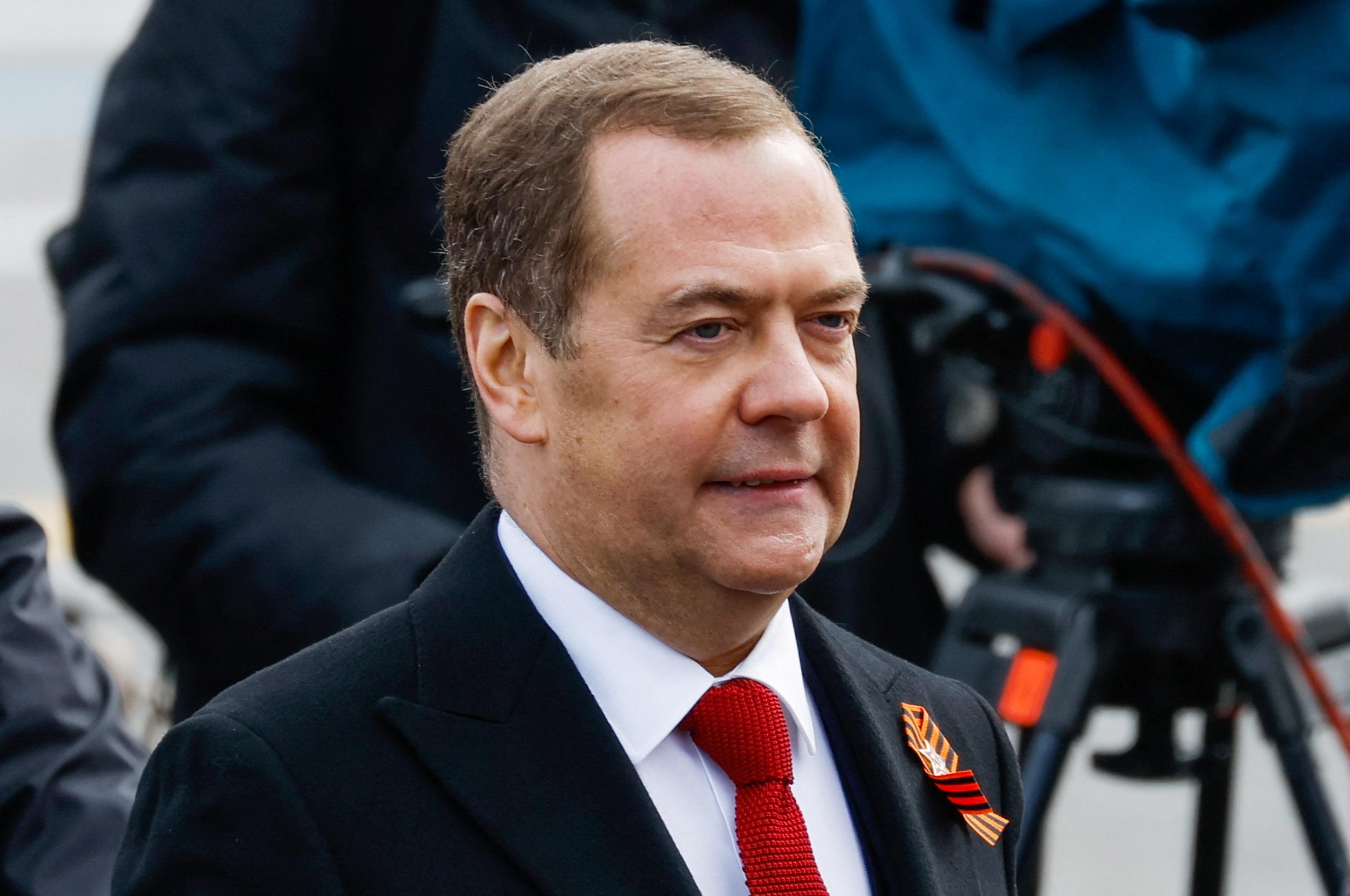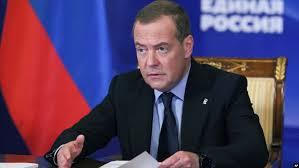Tensions between Russia and NATO have reached a boiling point as Dmitry Medvedev, Deputy Chairman of Russia’s Security Council, issued a fiery statement condemning the alliance, branding its 32 member states as enemies of Russia. His remarks, posted on X, warned that peace negotiations do not always lead to peace and suggested that failed talks could trigger catastrophic consequences, escalating fears of a broader conflict. Medvedev’s rhetoric, coupled with recent military posturing, has put NATO on high alert, with the specter of disaster looming over Europe.

Medvedev’s outburst comes amid heightened friction following reports of NATO’s increased defense spending and military exercises near Russia’s borders. Sources indicate that only 22 of NATO’s 32 members currently meet the alliance’s 2% GDP defense spending target, but discussions are underway to raise this to 5%, partly in response to demands from U.S. President Donald Trump. Medvedev, a known Kremlin hawk, has previously threatened nuclear retaliation against NATO’s newer members, Finland and Sweden, for joining the alliance, accusing them of abandoning neutrality. His latest comments amplify these threats, suggesting Russia could target NATO infrastructure if provoked, particularly in light of Ukraine’s reported missile strikes on Russian territory.
The backdrop to Medvedev’s warnings is the ongoing Russia-Ukraine conflict, now in its third year. Recent U.S.-led peace talks, which propose ruling out Ukraine’s NATO membership, have been met with skepticism by Russia. Medvedev’s statement on X hinted at distrust in these negotiations, warning that ultimatums to Russia could backfire. Meanwhile, NATO’s eastern flank, particularly Poland and the Baltic states, remains nervous about Russia’s ability to reconstitute its forces within two years if a Ukraine ceasefire is reached, according to a recent report. This fear is compounded by incidents like the recent Baltic Sea standoff, where Russian and NATO fighter jets faced off over a sanction-busting oil tanker.
 NATO’s response has been measured but firm. Secretary-General Mark Rutte, during a visit to Odesa, reaffirmed the alliance’s unwavering support for Ukraine, while European leaders discuss deploying peacekeeping troops as part of a potential ceasefire deal. Medvedev, however, has warned that such moves could lead to European soldiers “returning in coffins.” This rhetoric, combined with Russia’s nuclear posturing, has raised alarms about a potential escalation, with some analysts warning of a possible Russian strike on NATO by 2027 if tensions are not de-escalated.
NATO’s response has been measured but firm. Secretary-General Mark Rutte, during a visit to Odesa, reaffirmed the alliance’s unwavering support for Ukraine, while European leaders discuss deploying peacekeeping troops as part of a potential ceasefire deal. Medvedev, however, has warned that such moves could lead to European soldiers “returning in coffins.” This rhetoric, combined with Russia’s nuclear posturing, has raised alarms about a potential escalation, with some analysts warning of a possible Russian strike on NATO by 2027 if tensions are not de-escalated.
As the world watches, the 32 NATO countries brace for uncertainty. Medvedev’s aggressive stance reflects Russia’s broader strategy to counter NATO’s expansion and influence. With ongoing naval and air confrontations, the risk of miscalculation grows, threatening a disaster that could engulf the region. The international community now faces the urgent task of navigating these tensions to prevent a slide into all-out conflict, while Medvedev’s words serve as a stark reminder of the fragile state of global security.






